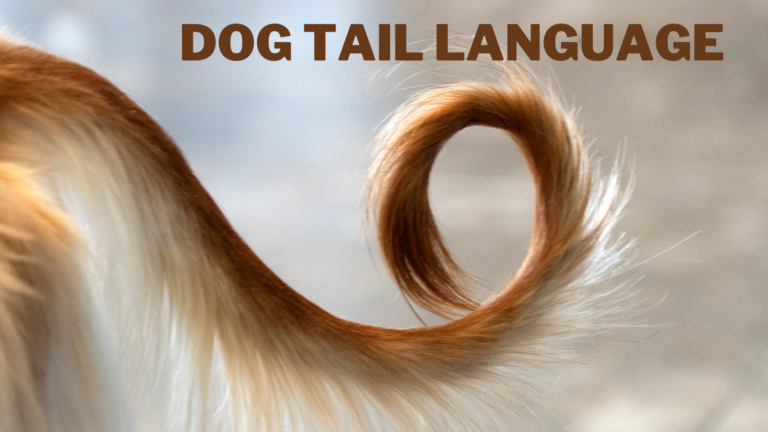Raw Vegetables For Dogs – A Guide To Healthy Snacking
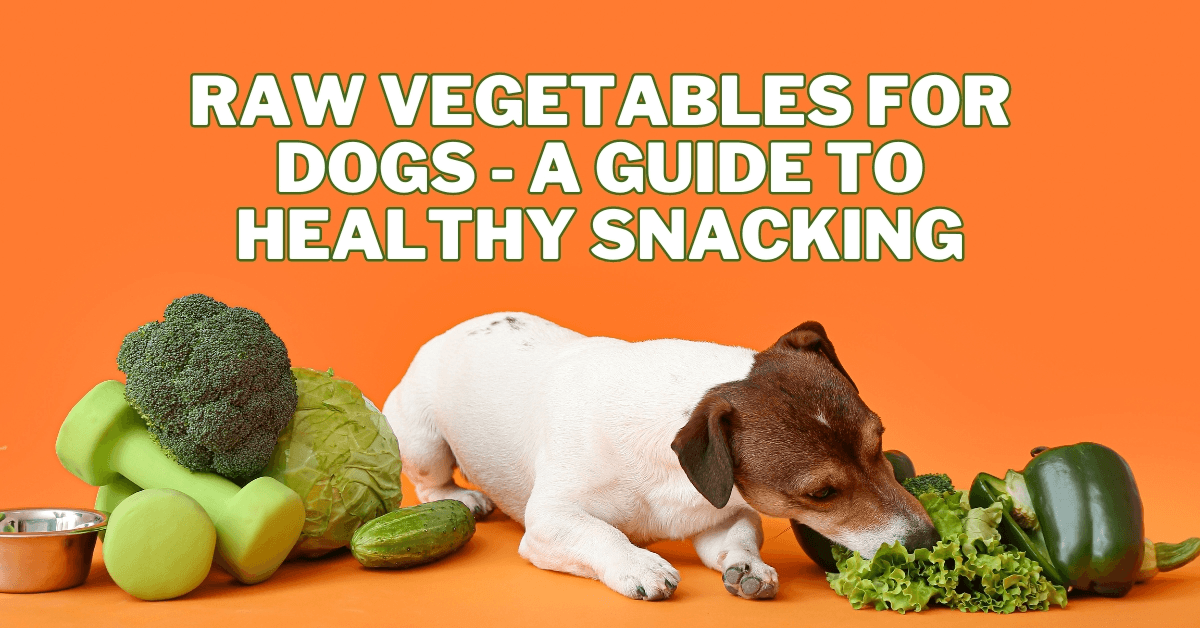
Raw Vegetables For Dogs – A Guide To Healthy Snacking
Raw vegetables can be a nutritious addition to dogs' diets, providing essential vitamins, minerals, and fibre.
While dogs are primarily carnivores, they can benefit from a small amount of vegetables to supplement their nutrition.
However, not all vegetables are safe for dogs; some may even be harmful. Knowing which vegetables are suitable for dogs and how to prepare them properly ensures your furry friend receives the maximum benefit.
In this article, we'll explore the benefits of feeding your dog raw vegetables, the safe and beneficial vegetables, and how to introduce them safely into your dog's diet.
We'll also discuss potential risks and precautions to consider when feeding raw vegetables to your dog.
You may feed your dog a balanced, nutrient-rich diet that will promote their health and well-being if you know the importance of veggies in their diet and according to the recommended requirements.
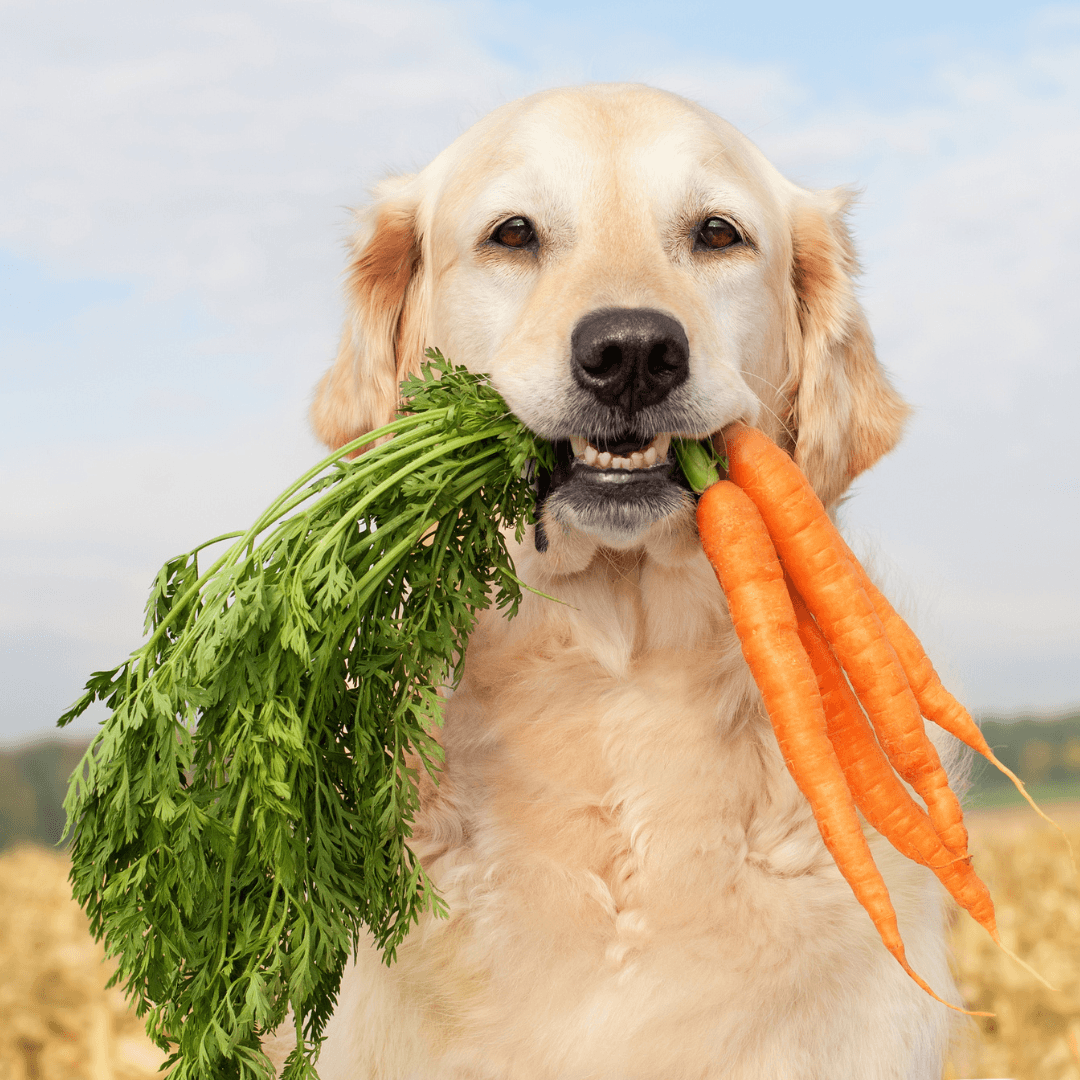
Benefits Of Raw Vegetables For Dogs
Incorporating raw vegetables into your dog's diet can offer numerous health benefits to their overall well-being and vitality. Here are some key advantages:
1. Improved Digestion
Raw vegetables are an excellent source of dietary fibre, which is crucial for the proper functioning of the digestive system.
Fibre can assist in managing disorders like irritable bowel syndrome by regulating bowel motions and reducing constipation and diarrhea.
Furthermore, fibre helps provide a fullness sensation that can help control weight and stop overeating.
2. Enhanced Oral Health
Crunchy vegetables like carrots, celery, and snap peas can act as natural toothbrushes, scrubbing plaque from a dog’s teeth as they chew.
This mechanical cleaning action can reduce the buildup of tartar and lessen the risk of gum disease.
Furthermore, chewing stimulates the production of saliva, which has natural antibacterial properties, helping to keep the oral environment healthy.
3. Low-Calorie Treats
Offering raw vegetables as treats is a smart choice for dogs on a calorie-restricted diet or those prone to obesity.
Vegetables like broccoli, cauliflower, and lettuce are low in calories but high in nutrients, making them ideal for training treats or as a supplement to meals without adding excessive calories.
4. Rich In Vitamins And Minerals
Vegetables are a great source of important vitamins and minerals for a dog's health.
For example, spinach is loaded with iron, vital for healthy blood cells, while sweet potatoes are a rich source of vitamin A, which is important for maintaining healthy skin, coat, and eyes.
These nutrients help support the immune system, promote energy levels, and enhance overall vitality.
5. Antioxidant Properties
Many vegetables, like kale and bell peppers, are highly antioxidants. These compounds combat oxidative stress and can reduce inflammation in the body.
Antioxidants also prevent chronic diseases and help slow dogs' aging by protecting their cells from damage.
6. Hydration
Some vegetables, such as cucumbers and celery, have a high water content. These can help keep your dog hydrated, which is particularly beneficial during hot weather or after exercise.
Adequate hydration is required to maintain optimal kidney function and general metabolic processes.
Before introducing raw vegetables to your dog's diet, it's crucial to consult with a veterinarian, especially if your dog has specific health issues.
Some vegetables may need to be avoided depending on individual health conditions.
Additionally, vegetables should be slowly introduced to monitor for adverse reactions such as gastrointestinal upset.
Exploring Raw Vegetables For Dogs
Introducing raw vegetables into your dog's diet can be a wonderful way to enhance their nutrition with minimal effort.
Vegetables can provide essential vitamins, minerals, and fibre that help support your dog's digestion and overall health.
However, not all vegetables are safe for canine consumption, so it's crucial to know which ones you can safely share with your furry friend.
Here’s a list of dog-friendly raw vegetables that offer various health benefits, making them excellent additions or occasional treats to your dog’s feeding regimen:
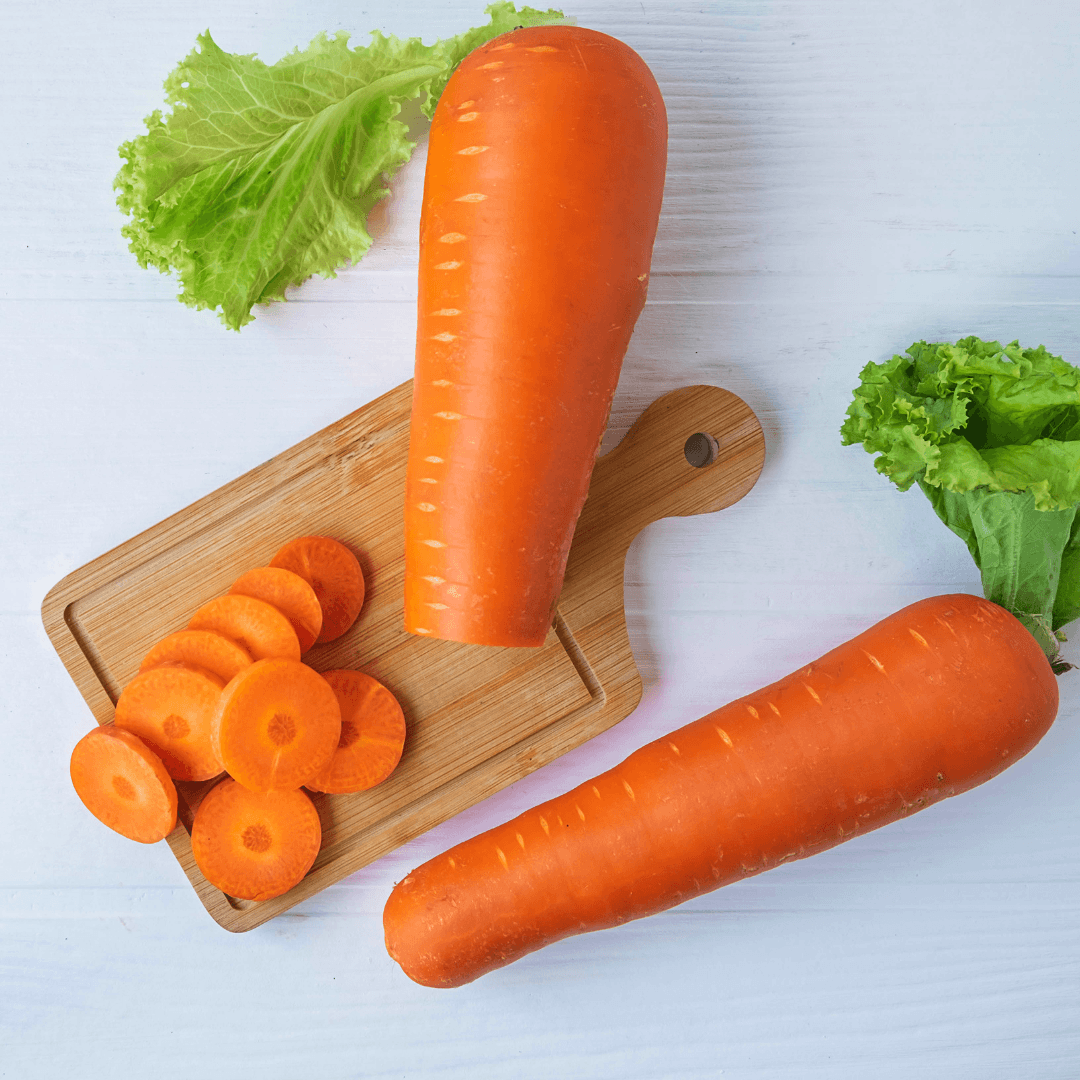
1. Carrots
Carrots are a great addition to your dog's diet because they have several health advantages.
They are a fantastic snack for dogs watching their weight because they are minimal in calories.
The substantial fibre content for dogs on a diet facilitates digestion and may even help with feeling full.
Carrots are also a great source of vitamins, such as A, which are necessary for good skin, coat, and vision.
Carrot chewing is also good for your dog's dental health since it helps remove tartar and plaque accumulation, which leads to improved oral hygiene and cleaner breath.
Carrots should be fed in moderation, though, as some dogs may have stomach distress if they eat too much.
A tasty and nourishing treat, carrots help improve your dog's general health and wellbeing.
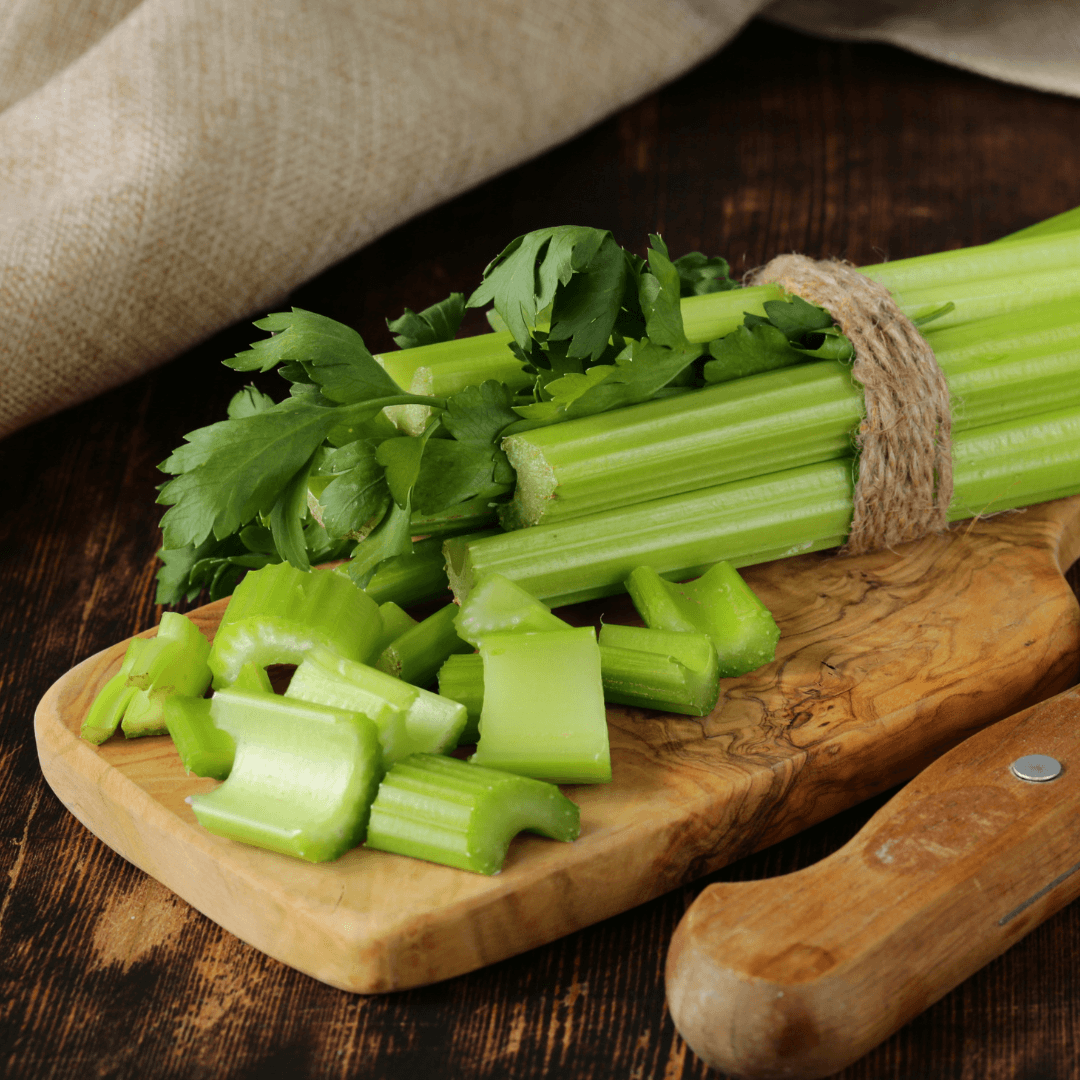
2. Celery
Celery is one of the many health advantages of raw veggies for dogs. They are high in fibre and low in calories and fat and help regulate digestion and bowel movement.
Because of its low calorie and fat content, it's a great snack for dogs who need to maintain weight.
Additionally, celery is fibre-rich and can improve digestion and help control bowel motions.
One of its special benefits is that it can freshen dog breath. Celery's crisp texture can help remove tartar and plaque from your dog's teeth, improving oral health and breath.
Celery also contains high levels of vitamins A, C, and K, all of which are vital for sustaining general health.
Vitamin C is a potent antioxidant that strengthens the immune system, vitamin K is necessary for healthy bones and blood clotting, and vitamin A is essential for immune system support and vision.
Celery is a tasty and nourishing treat with numerous health benefits for your dog.
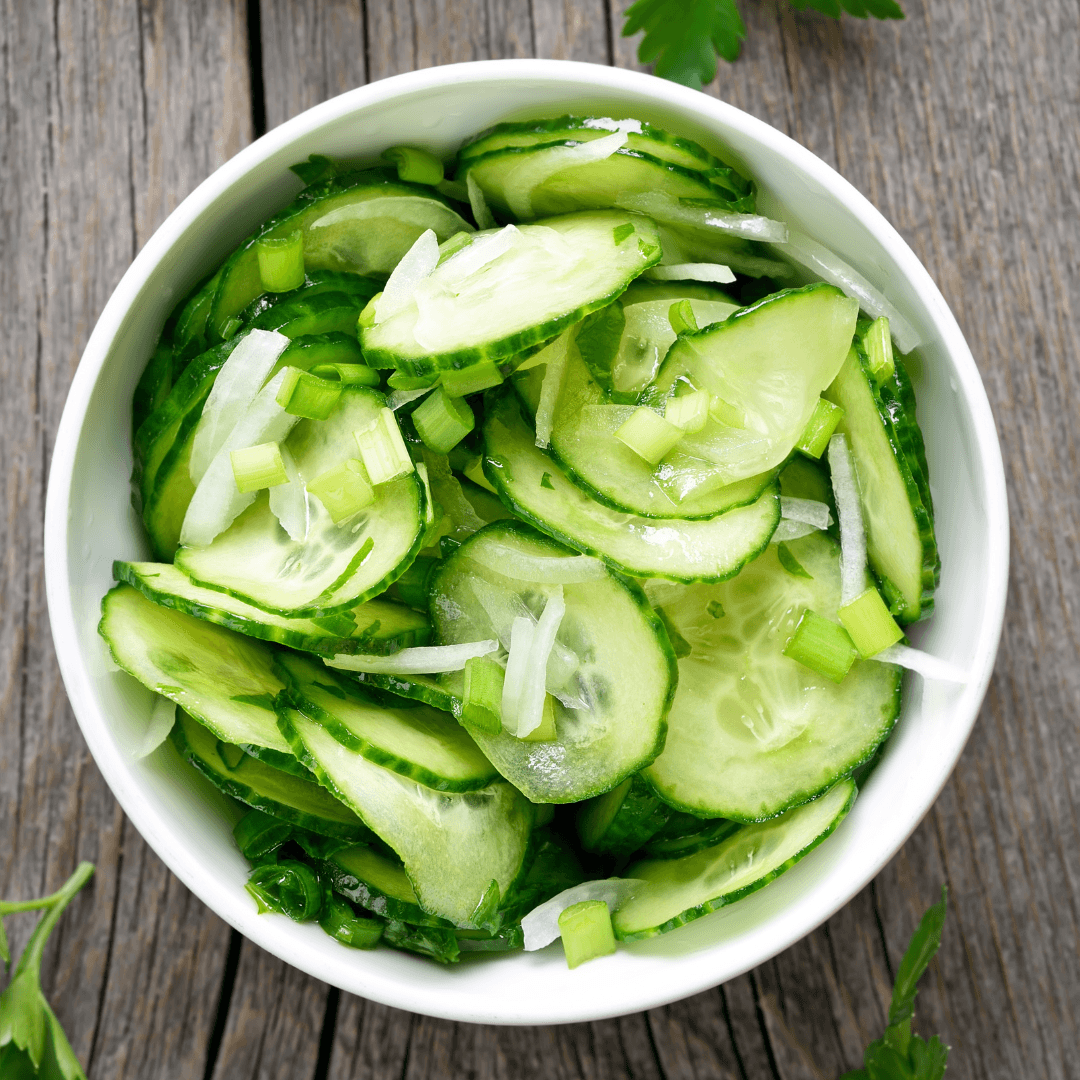
3. Cucumbers
Green beans are a healthy addition to your dog's diet. They have several advantages.
They are a great option for dogs that need to control their weight because they are low in calories and fat.
Iron, which is necessary for preserving healthy blood cells and avoiding anemia, is abundant in green beans.
Green beans are also a rich source of fibre, which can help with digestion and give you a fuller sensation, as well as vitamins A, C, and K.
Cucumbers' crunchy texture can also enhance your dog's oral health by assisting in the removal of tartar and plaque.
Giving cucumbers in moderation is crucial because giving dogs too many can irritate their stomachs.
Cucumbers are a refreshing and healthy treat that can help your dog achieve its weight loss goals while providing essential nutrients.
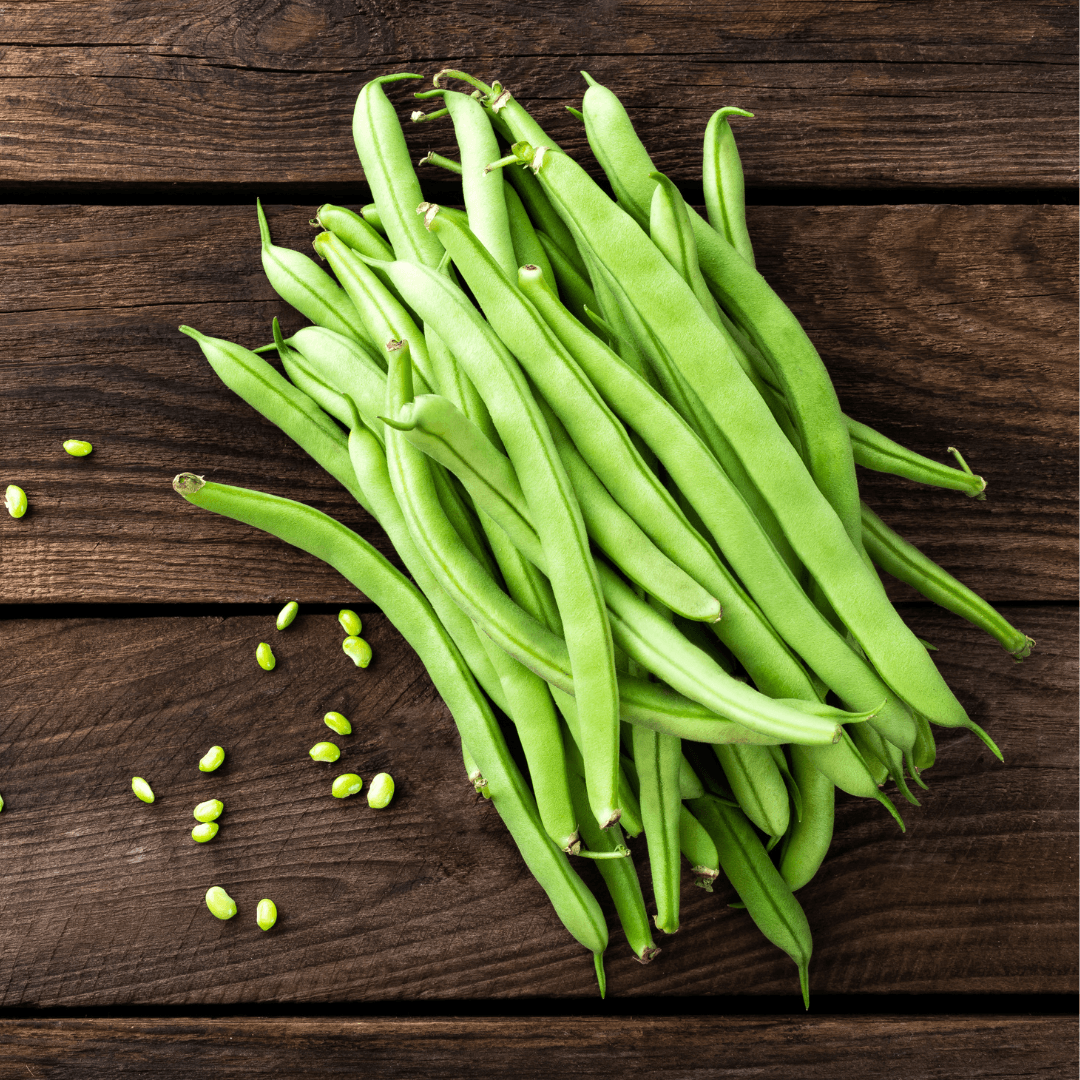
4. Green Beans
Green beans are a nutritious addition to your dog's diet, offering a variety of health benefits.
They are low in calories and fats, making them an excellent choice for dogs that need to manage their weight.
Green beans are also full of iron, essential for maintaining healthy blood cells and preventing anemia.
Additionally, green beans are a good source of vitamins A, C, and K and fibre, which aid digestion and promote a feeling of fullness.
This makes them a great treat or filler for dogs begging for food or a low-calorie snack. Green beans can be fed raw, cooked, or frozen for a crunchy treat.
However, feeding green beans in moderation is important, as excessive consumption can lead to digestive upset in some dogs.
Overall, green beans are a healthy and delicious addition to your dog's diet, supporting its weight management goals while providing essential nutrients.
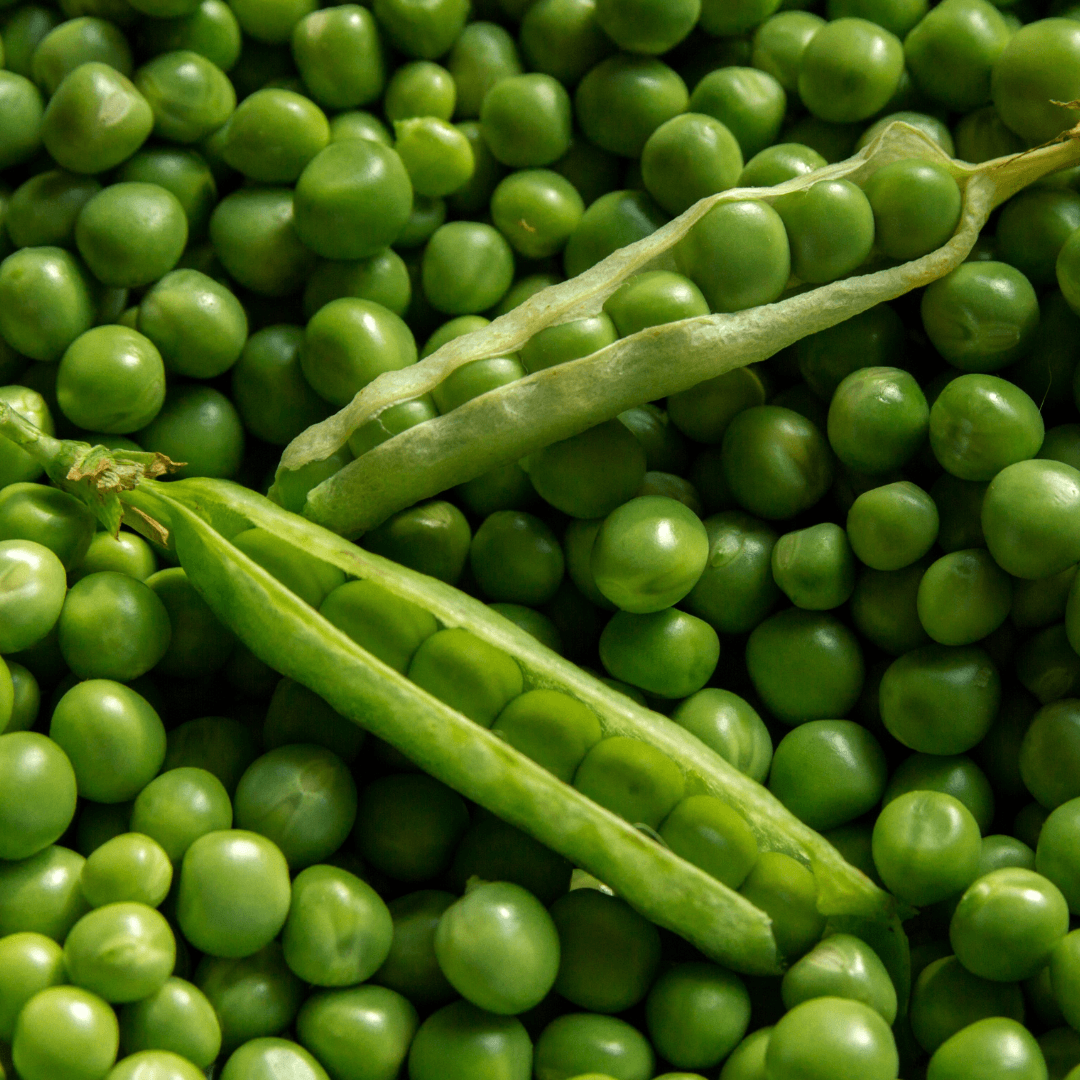
5. Peas
Raw vegetables, including peas, are nutritious options for dogs. They are packed with essential vitamins, minerals, and fibre and can be a healthy treat, particularly for weight management.
They are packed with minerals and vitamins, including vital nutrients such as vitamin C, which boosts immunity, and vitamin K, which is necessary for blood clotting.
Peas are a rich source of fibre, which helps with digestion and increases feelings of fullness.
These vegetables are also low in calories and fats, making them a healthy treat for dogs, especially those watching their weight.
However, it's important to avoid canned peas, as they often contain added sodium, which can harm dogs in large amounts.
Instead, opt for fresh or frozen peas, which can be served raw or cooked. As with any new food, gradually introduce peas into your dog's diet to monitor for any signs of digestive upset.
Peas are a nutritious and tasty addition to your dog's diet that can provide various health benefits.
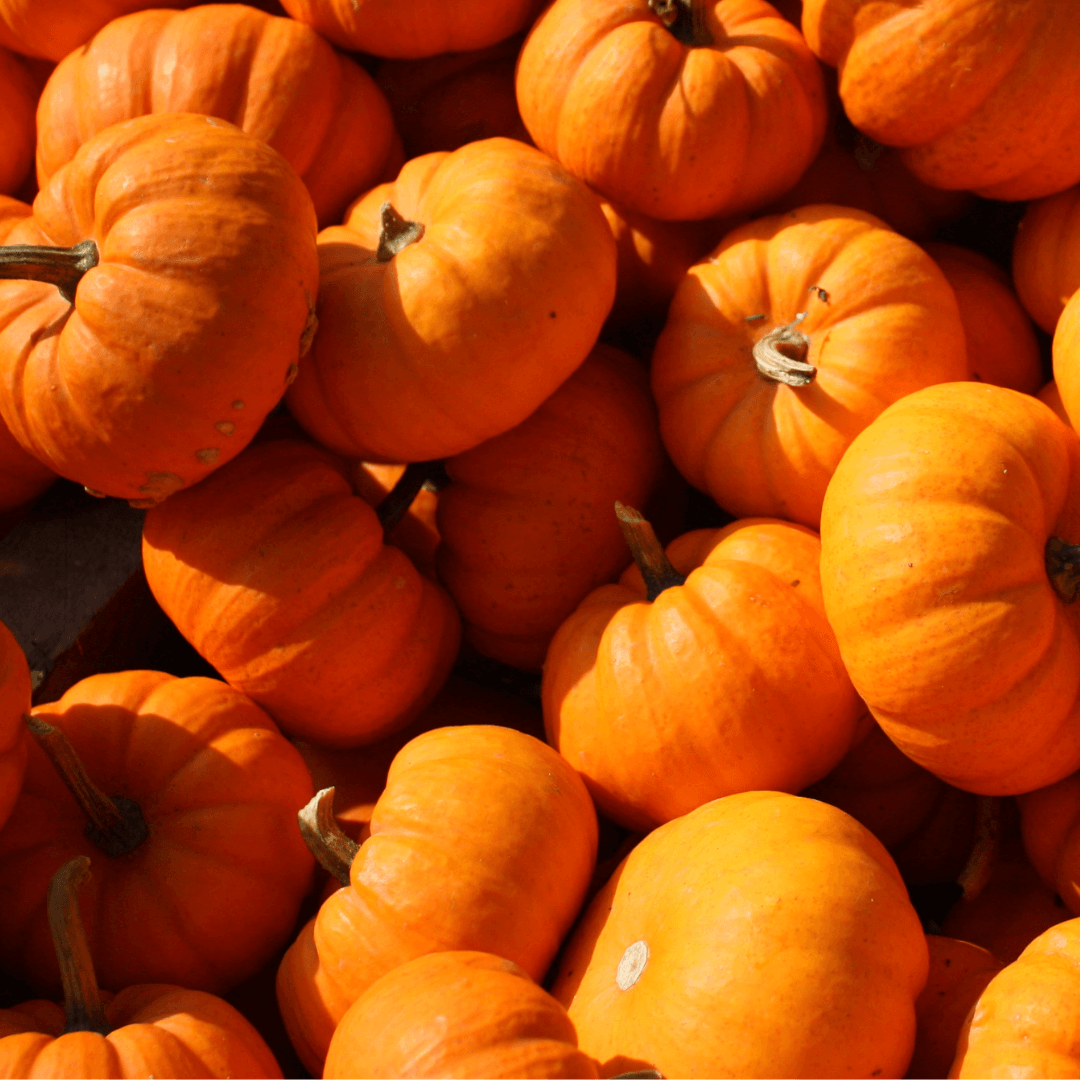
6. Pumpkin
Pumpkin is a fantastic addition to your dog's diet, particularly for digestive health. It is rich in fibre, which can help regulate bowel movements and alleviate diarrhea and constipation in dogs.
Pumpkin's soluble fibre helps to firm up soft stools by absorbing extra water in the digestive system.
Conversely, the insoluble fibre in pumpkin adds bulk to stool, which can help with constipation.
Pumpkin also contains antioxidants and vitamins, such as A, C, and E, which can support overall health and immune function.
When feeding pumpkin to your dog, it's crucial to use pure pumpkin puree and not the spiced pie filling, which often contains added sugars and spices unsuitable for dogs.
You can feed pumpkin to your dog as a standalone treat or mix it into their regular food.
As with any new food, gradually introduce pumpkin into your dog's diet to avoid digestive upset, and consult your veterinarian if you have any concerns.
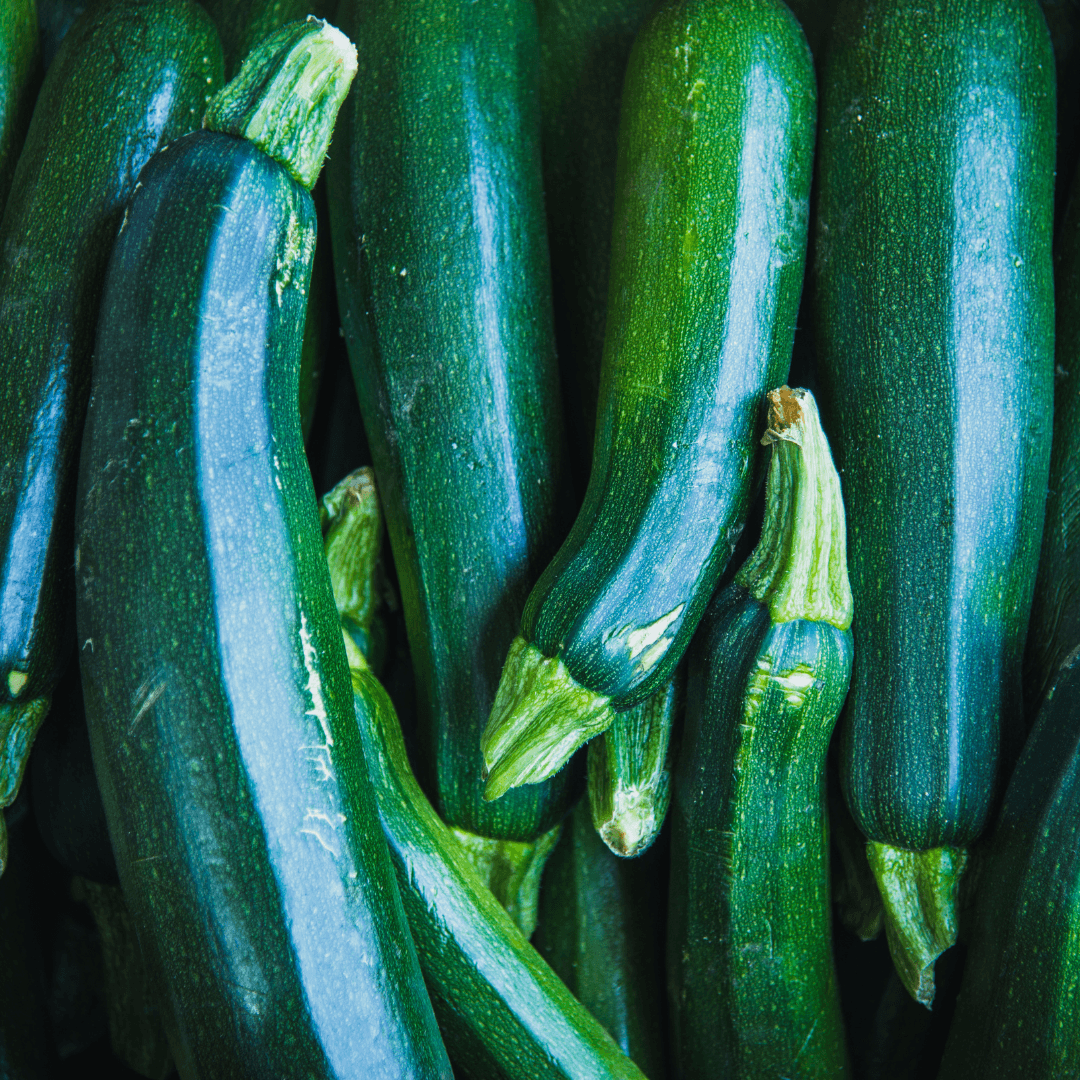
7. Zucchini
Zucchini is a nutrient-dense veggie that is an excellent addition to your dog's diet. It is fat-free and low in calories, making it a great option for dogs who need to watch their weight.
In addition to vitamins A, C, and K, potassium and manganese are among the many vitamins and minerals in zucchini, a low-calorie food.
These nutrients can enhance your dog's immune system, eyesight, and bone health. Plus, zucchini has a lot of fibre, which helps with digestion and makes you feel fuller longer.
Canines who tend to overeat or gain weight may find this very helpful. Bite-sized portions of zucchini can be served raw or cooked to avoid choking hazards.
As with any new food, gradually add zucchini to your dog's diet and watch for any indications of upset stomach. A tasty and nutrient-dense vegetable, zucchini can be a beneficial treat for your dog.
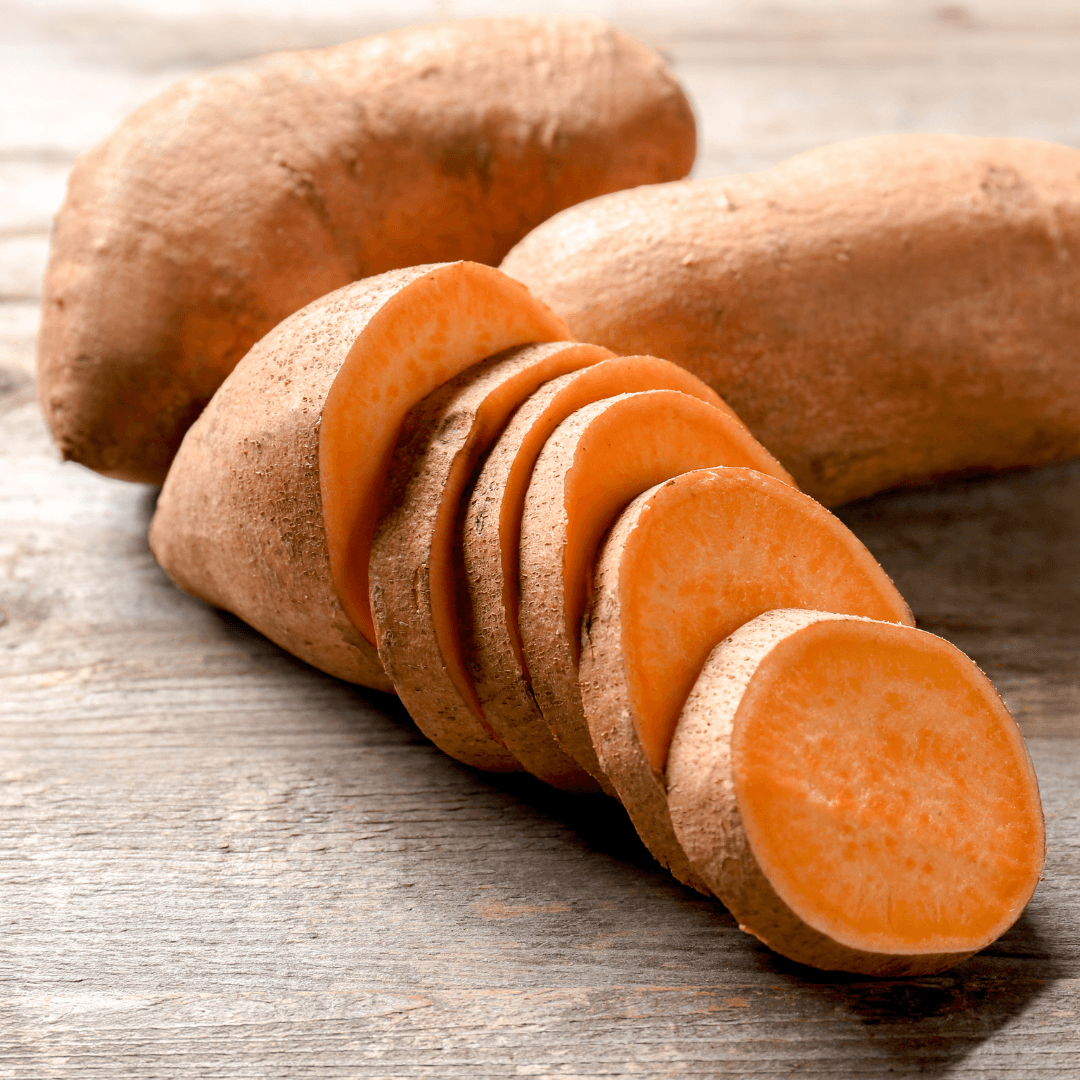
8. Sweet Potatoes
Sweet potatoes and other raw veggies are a healthy supplement to any dog's diet. They are high in dietary fibre, vitamins, and minerals, supporting general health, aiding digestion, and encouraging a healthy weight.
Because of their high dietary fibre content, they facilitate digestion and support gut health.
For dogs attempting to maintain a healthy weight, the high fibre content can also assist in managing blood sugar levels and contribute to a sensation of fullness.
In addition, sweet potatoes are a great source of vitamins and minerals, such as vitamin A, which is necessary for good skin, hair, and eyesight.
Sweet potatoes are also a good source of antioxidants with anti-inflammatory and health-promoting properties.
When cooked, sweet potatoes are simpler for dogs to chew and digest, so this is the ideal way to serve them.
Sweet potatoes can be cooked in various ways. First, chop them into bite-sized pieces and bake, boil, or steam them for your dog.
As with any new meal, sweet potatoes should be added to your dog's diet gradually so you can watch for any indications of stomach distress.
Sweet potatoes are a filling and delicious food that can offer your dog several health advantages.
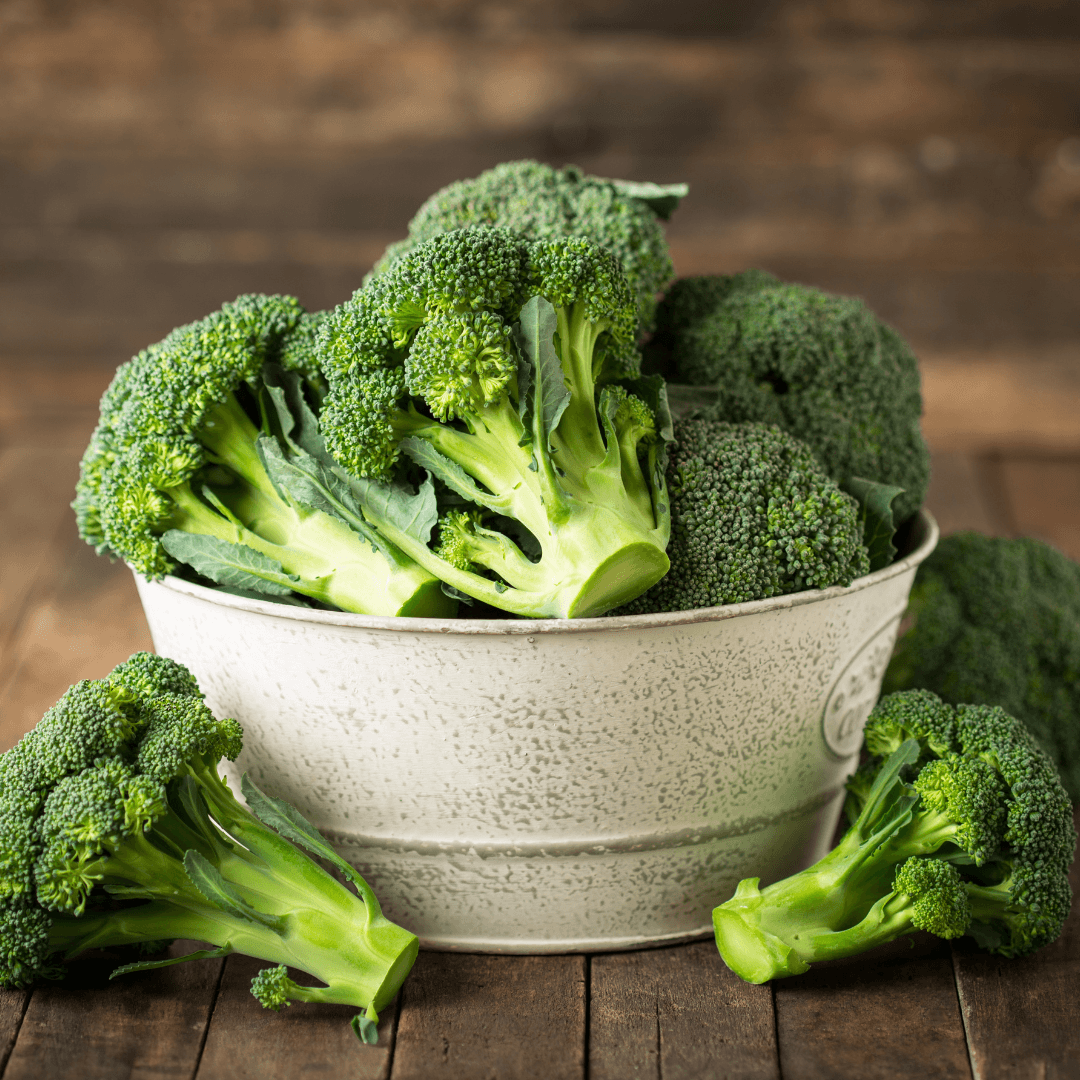
9. Broccoli
Broccoli can be a healthy addition to your dog's diet, but it should be fed in very small amounts.
This is because broccoli contains isothiocyanates, which can cause gastric irritation in some dogs, leading to stomach upset and gas.
However, small quantities of broccoli can provide several health benefits for your dog. It is rich in vitamins C and K and fibre, supporting your dog's immune system, bone health, and digestion.
Broccoli also contains antioxidants, which can help reduce inflammation and prevent cell damage.
When feeding your dog broccoli, cook it thoroughly to break down the tough fibres and make it easier to digest.
You should also chop it into small, bite-sized pieces to prevent choking. As with any new food, gradually introduce broccoli into your dog's diet and monitor for any signs of digestive upset. Broccoli can be a healthy and nutritious treat for your dog when fed in moderation.
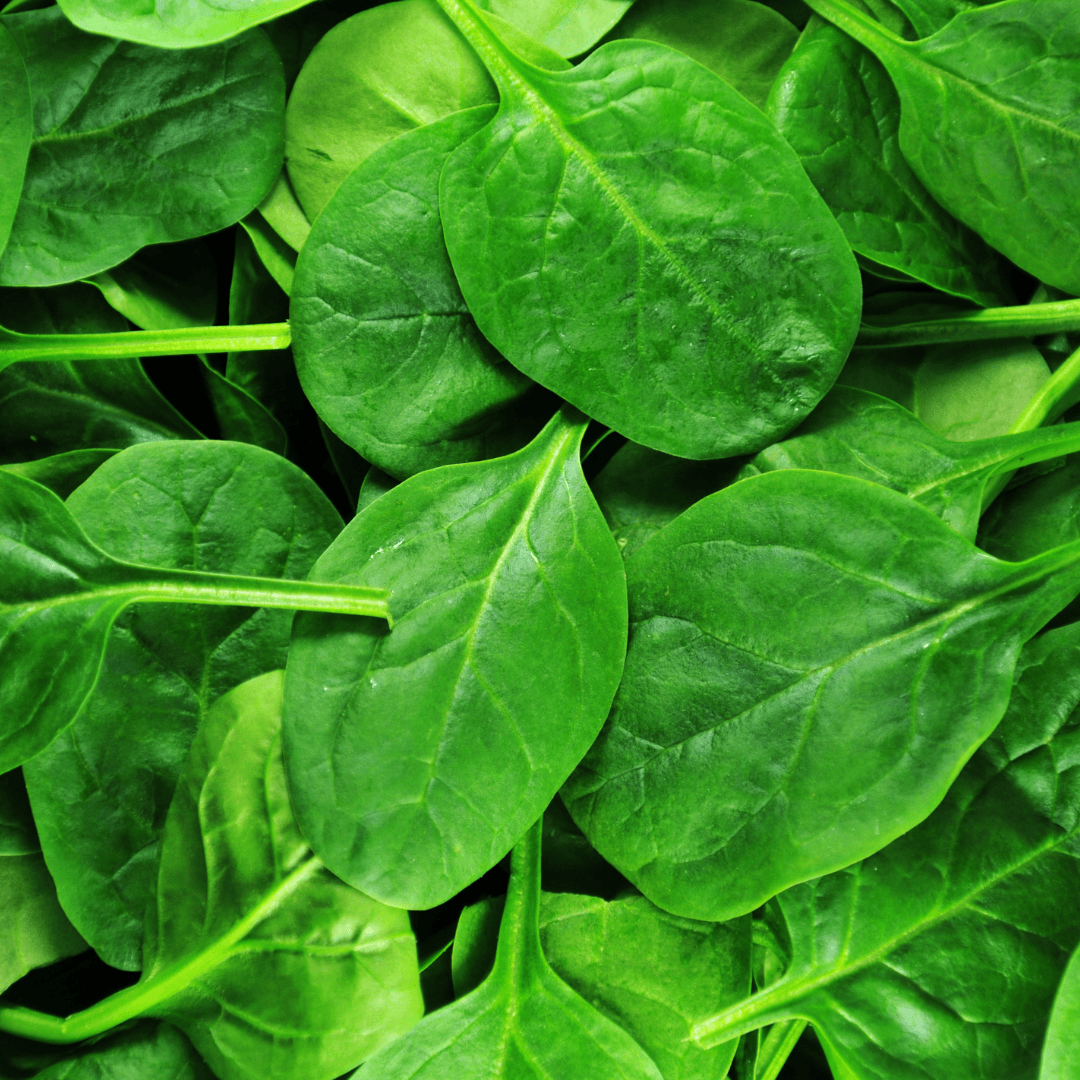
10. Spinach
For dogs, raw veggies like spinach can be a good supplement to their diet, but because they contain oxalate, some dogs may develop kidney or bladder stones, so it's best to feed them in moderation.
Certain dogs may develop kidney or bladder stones due to oxalates' ability to bind with calcium in the body.
But iron, necessary for preserving healthy red blood cells and avoiding anemia, is also abundant in spinach.
Furthermore, spinach's antioxidants, like beta-carotene and vitamin C, can help prevent cell damage and reduce inflammation.
When feeding spinach to your dog, it's best to cook it first to reduce the oxalate content and make it easier to digest.
Be sure to chop it into small, manageable pieces to prevent choking. As with any new food, gradually introduce spinach into your dog's diet and monitor for any signs of digestive upset or other adverse reactions. Spinach can be a nutritious and healthy treat for your dog when fed in moderation.
FAQ
1. Can Dogs Eat The Skin Of An Apple?
Yes, dogs can eat apple skin. It's a good source of fibre and nutrients, but remove the seeds and core as they can be choking hazards and contain cyanide.
2. Can Dogs Eat The Skin Of Cucumbers?
Yes, dogs can eat cucumber skin. It's safe and nutritious, but as with any vegetable, feed it in moderation to avoid digestive upset.
3. Can Dogs Eat The Skin Of Zucchini?
Yes, dogs can eat zucchini skin. It's safe and contains additional nutrients, but it's best to feed it in moderation, as with the flesh.
4. Can Dogs Eat The Skin Of A Pumpkin?
Yes, dogs can eat pumpkin skin. It's safe and nutritious, but ensure it's cooked and remove any tough or fibrous parts.
5. Can Dogs Eat The Skin Of A Banana?
Dogs can eat banana skin, but it's not typically recommended. The skin can be difficult for dogs to digest and may cause digestive upset.
6. Can Dogs Eat The Skin Of Potatoes?
No, dogs should not eat potato skins. They contain solanine, which is toxic to dogs, especially in green or raw potatoes. It's best to peel and cook potatoes before feeding them to your dog.
Conclusion
Incorporating raw vegetables into your dog's diet can be a healthy choice. Still, it's crucial to do so in moderation and with caution, ensuring that the vegetables are safe and suitable for consumption.
Many raw vegetables, such as carrots, celery, and cucumbers, are low in calories and fats while rich in essential vitamins, minerals, and fibre.
These nutrients can support your dog's general health, including its immune system, digestion, and dental health.
Dogs shouldn't eat every vegetable raw; some, like onions and garlic, might be poisonous.
Finding out which veggies are safe for your dog to eat is essential. You should also introduce new meals gradually and watch for any negative responses.
Some vegetables may also need to be cooked to increase their digestibility or lower their risk of causing digestive distress.
Speaking with your veterinarian can ensure you provide your pet with a healthy diet.
Raw vegetables can be a wholesome and fun way to improve your dog's health and well-being if you take the proper safety measures.
I trust you enjoyed this article on Raw Vegetables For Dogs – A Guide To Healthy Snacking. Please stay tuned for more blog posts soon. Take care!
JeannetteZ
>>>Please click here to read my article on A Full Overview Of Dogs And Their Activity<<<
>>>Brain Training For Dogs Review<<<
My #1 Dog Training Recommendation
Your Opinion Is Important To Me
Do you have thoughts, ideas, or questions? I would love to hear from you. Please leave me your questions, experiences, and remarks about this article on Raw Vegetables For Dogs – A Guide To Healthy Snacking in the comments section below. You can also reach me by email at Jeannette@Close-To-Nature.org.
Disclosure
This post may contain affiliate links. As an Amazon Associate and other affiliate programs, I earn from qualifying purchases at no extra cost to you. Please read my full affiliate disclosure.
You might also enjoy these blog posts:
Best Homemade Cat Food Recipes
Type Of Soil For Vegetable Gardens
Unlocking The Secrets Of Trikatu
Best Tips To Grow Jojoba In Containers
Best Tips To Grow Witch Hazel In Containers




